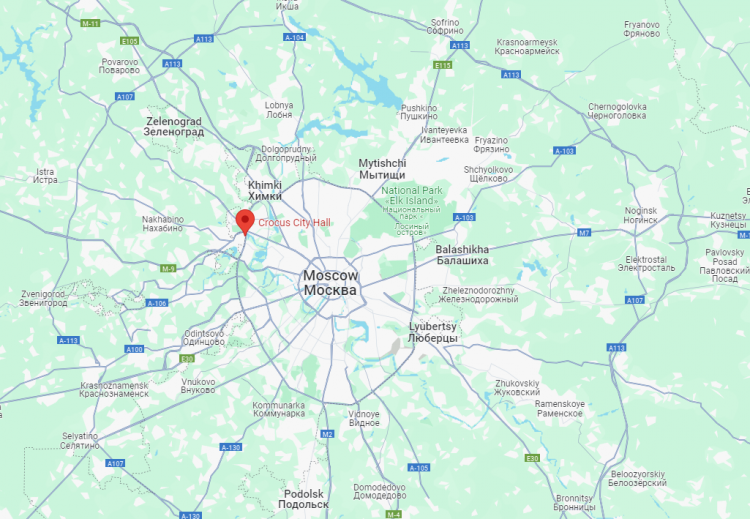In a devastating attack that Russian authorities are investigating as an act of terrorism, 40 people were killed and more than 100 wounded when several gunmen stormed the Crocus City Hall concert venue on the outskirts of Moscow on Friday. The assailants, armed with automatic weapons, sprayed concertgoers with gunfire and threw explosives, triggering a massive blaze that led to the partial collapse of the venue's roof.
According to the Federal Security Service in Russia, the attack is the deadliest in the country in recent years and comes just days after President Vladimir Putin cemented his grip on power in a highly orchestrated electoral landslide. The Crocus City Hall complex, which can accommodate more than 6,000 people, was set to host a performance by the famous Russian rock band Picnic when the attack unfolded.
Video footage from the scene showed huge plumes of black smoke billowing from the building as panic-stricken concertgoers huddled together, screaming and ducking behind seats as gunshots echoed throughout the vast hall. The prosecutor's office said several men in combat fatigues entered the venue and fired at visitors, while some reports indicated that the assailants threw a grenade or an incendiary bomb, sparking the fire.
JUST IN: Blast reported at concert hall near Moscow as gunmen open fire and reportedly detonate explosives at the Crocus City Music Hall. Authorities at this moment are estimating that five people were involved in the attack. Russian news agency 112 estimates the death toll is… pic.twitter.com/FYHKJgUMd3 — Collin Rugg (@CollinRugg) March 22, 2024
Extended rounds of gunfire could be heard on multiple videos posted by Russian media and Telegram channels, with one showing two men armed with rifles moving through the mall, and another depicting a man inside the auditorium saying the attackers had set it ablaze as gunshots rang out incessantly in the background. Additional videos showed up to four attackers, wearing caps and armed with assault rifles, shooting screaming people at point-blank range. Regional governor Andrey Vorobyov said he was heading to the area and had set up a task force to deal with the damage, while Moscow Mayor Sergei Sobyanin called the attack a "terrible tragedy" and ordered the cancellation of all sports, cultural, and other public events in the city this weekend. Russian media reported that riot police units were being sent to the area as people were being evacuated, with firefighters managing to rescue around 100 individuals from the building. The attack followed a statement issued earlier this month by the U.S. Embassy in Moscow, which urged Americans to avoid crowded places in the Russian capital due to an imminent threat, a warning that was repeated by several other Western embassies. President Putin, who extended his grip on Russia for another six years in the March 15-17 presidential vote following a sweeping crackdown on dissent, had earlier this week denounced the Western warnings as an attempt to intimidate Russians.
#BREAKING: RT NEWS IS LIVE AT THE SCENE OF THE CROCUS CITY HALL TERRORIST ATTACK IN MOSCOW pic.twitter.com/zuIkcSjWhn — The Saviour (@stairwayto3dom) March 22, 2024
White House National Security Advisor John Kirby expressed horror at the attack, saying, "The images are just horrible. And just hard to watch. Our thoughts are going to be with the victims of this terrible, terrible shooting attack. There are some moms and dads and brothers and sisters and sons and daughters who haven't gotten the news yet. This is going to be a tough day."
Russia has experienced several deadly terror attacks in the past, particularly during the early 2000s amid fighting with separatists in the Russian province of Chechnya. In October 2002, Chechen militants took about 800 people hostage at a Moscow theater, resulting in the deaths of 129 hostages and 41 Chechen fighters when Russian special forces stormed the building. In September 2004, approximately 30 Chechen militants seized a school in Beslan, southern Russia, taking hundreds of hostages. The siege ended in a bloodbath two days later, with more than 330 people killed, about half of them children.
As Russian authorities work to investigate the latest attack and provide assistance to the victims, the nation grapples with the shock and devastation of yet another deadly act of violence. The tragedy at the Crocus City Hall concert venue serves as a grim reminder of the ongoing threat of terrorism and the need for heightened security measures in public spaces.




